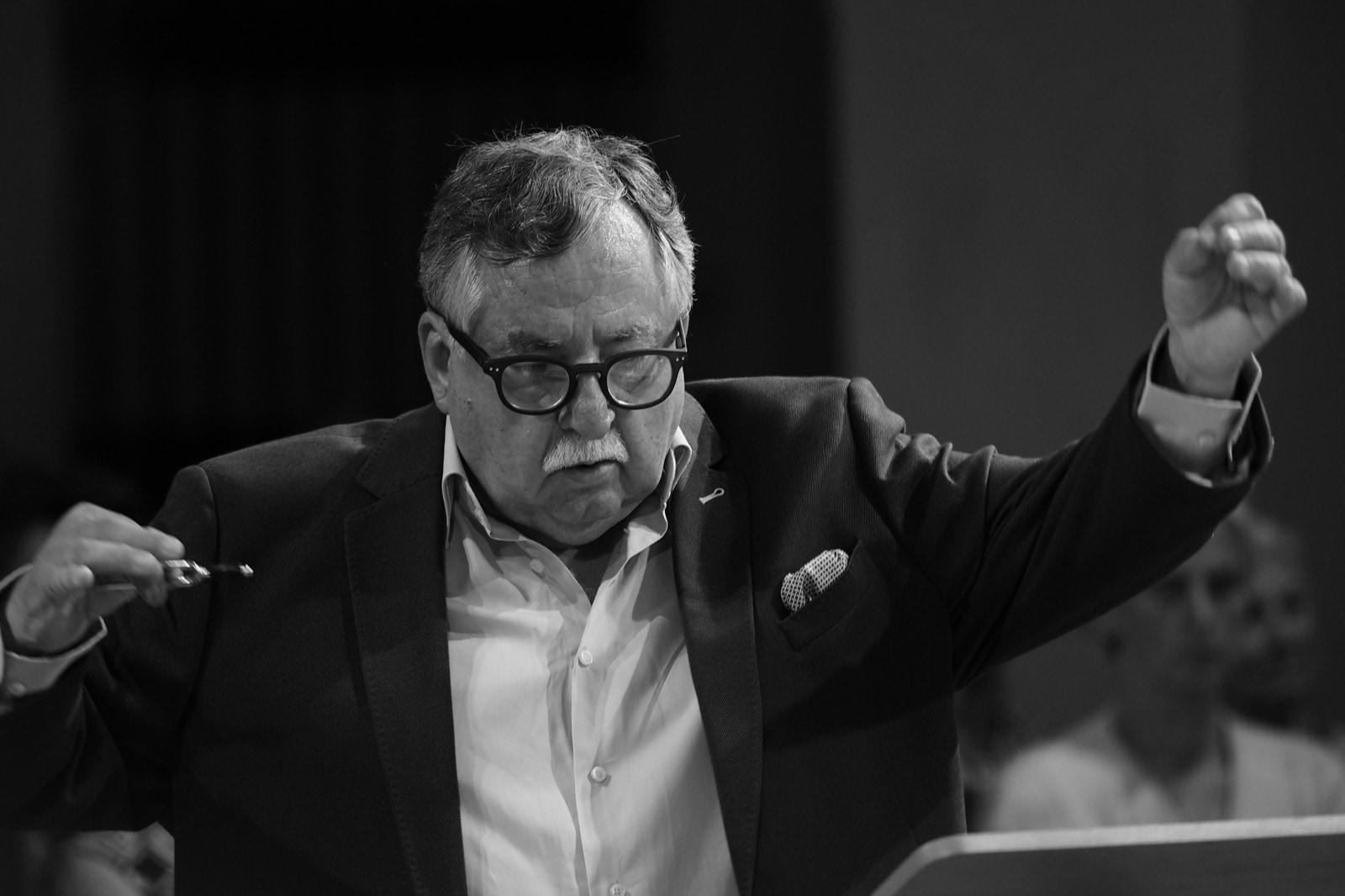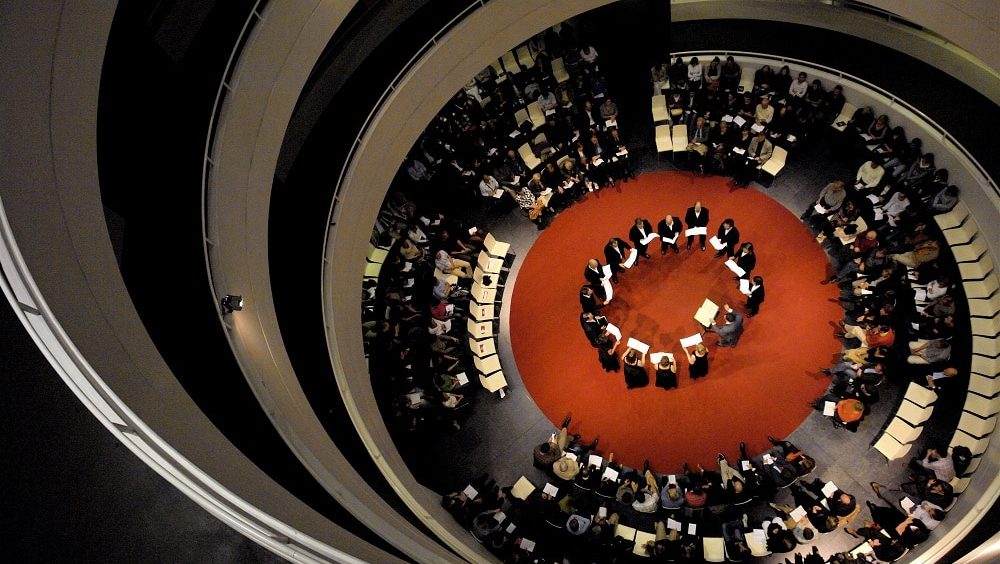A Polyphonic Testament of Josquin Desprez
The concert will take place without an audience in the hall.
You can watch the live broadcast of the concert as well as two dozen others on our website for free.
Pre-Concert Talk has been canceled.
The concert is held in cooperation with the International Spiritual Center Prague Crossroads.
Programme
- Josquin Desprez: Inviolata, integra et casta es Maria
- Josquin Desprez: Comment peult avoir joye
- Josquin Desprez: Missa “Da Pacem”: Agnus Dei
- Josquin Desprez: Ut Phoebi radiis
- Josquin Desprez: Et trop penser
- Josquin Desprez: Praeter rerum seriem
- Ludwig Daser: Missa “Praeter rerum seriem”: Sanctus
- Josquin Desprez: La plus des plus
- Josquin Desprez: Dulces exuviae
- Josquin Desprez: Missa “Maheur me bat”: Agnus Dei
Performers
- Huelgas Ensemble
- Paul Van Nevel – Artistic Director
Watch now!
One of the finest vocal ensembles
“Even though Josquin Desprez is one of the most important and most intriguing Renaissance composers, his music is not performed in Prague all that often. We are therefore delighted that, to mark the 500th anniversary of his death, the Huelgas Ensemble, one of the finest vocal ensembles of its kind, has put together a special programme for the Prague Spring dedicated to his work,” says Programme Director Josef Třeštík. The concert held at Prague Crossroads will focus on the composer’s final period, spent in his native region in the town of Condé-sur-l’Escaut in present-day northern France, where he finally settled after his return from Italy. “Josquin was a pioneer. He mastered all the contrapuntal techniques to control his polyphony as he wished, often in violation of the accepted rules,” states founder and Artistic Director of the Huelgas Ensemble, Paul Van Nevel.
Paul Van Nevel launched the Huelgas Ensemble in 1971 at the Schola Cantorum in Basel, Switzerland. The ensemble, which derives its name from the famous mediaeval liturgical codex from the Spanish Cistercian convent of Las Huelgas, has long been known as a pioneer in the performance of European mediaeval and Renaissance polyphony. It rightly deserves this status since its artistic director not only draws on musical sources, but also examines period literature, rhetoric and pronunciation. With watertight knowledge of period contexts Huelgas is thus able to revive unjustly neglected compositions. Thanks to its excellent reputation it is also increasingly sought after by contemporary composers who write brand new works specially for the ensemble.
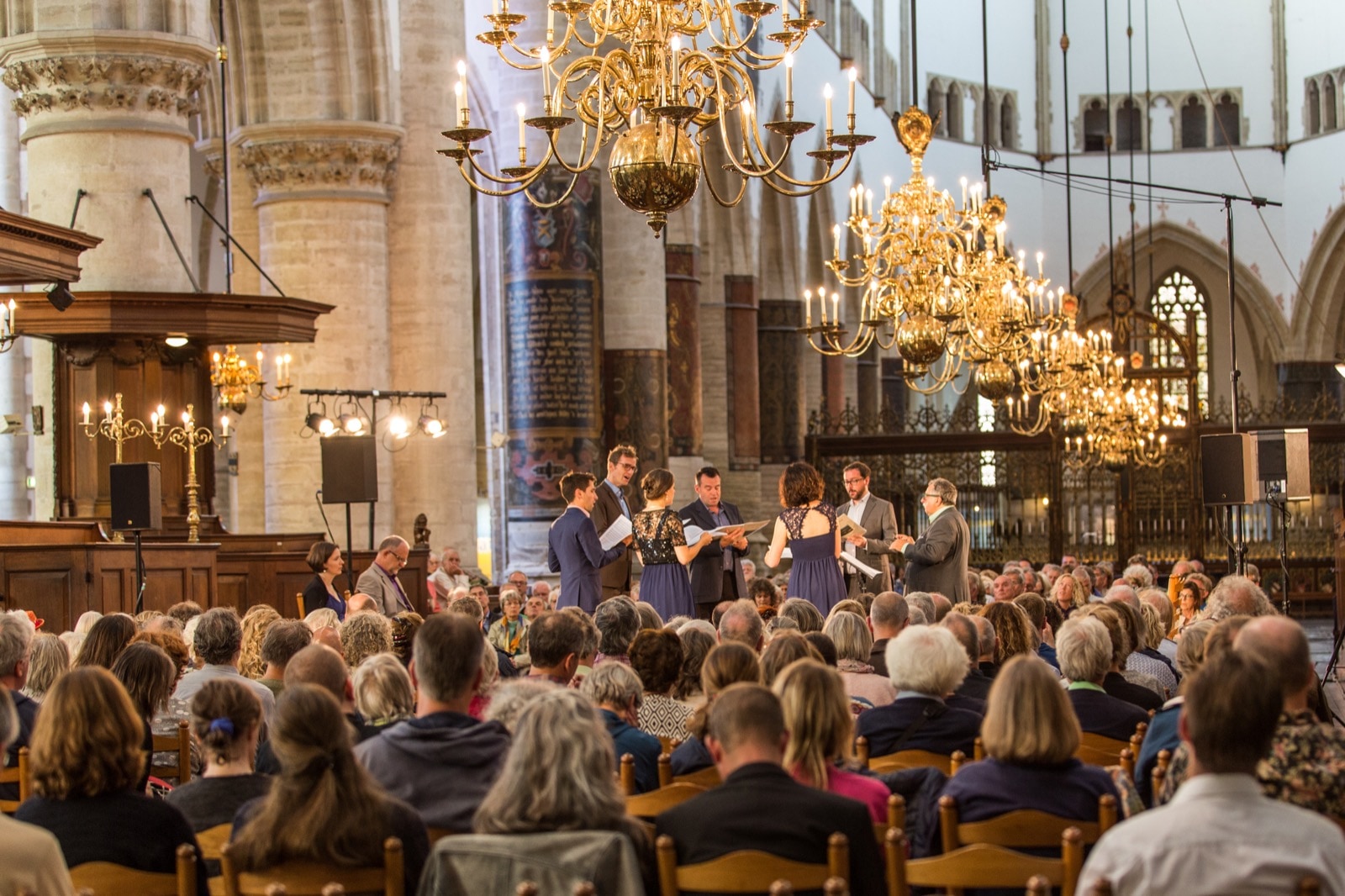
Spiritual music in churches
The Huelgas Ensemble has been giving concerts all over the world for forty years now – from the BBC Proms in London and the Berlin Philharmonic Hall, to New York’s Lincoln Center. They particularly enjoy performing spiritual music in the setting for which it was written, i.e. in mediaeval churches and monasteries, thus audiences can experience the synthesis of wonderful music and superb architecture, as is the case with the Prague Spring concert held in the Gothic church of St Anne at Prague Crossroads. Since 2019 the ensemble has also been organising its own Pentecostal Festival in the picturesque village of Talant in Burgundy.
The ensemble’s recordings regularly win prestigious awards, including the Diapason d’Or, Preis der deutschen Schallplattenkritik, and an award for their CD featuring the opera La liberazione di Ruggiero dall’isola d’Alcina by Baroque composer Francesca Caccini.
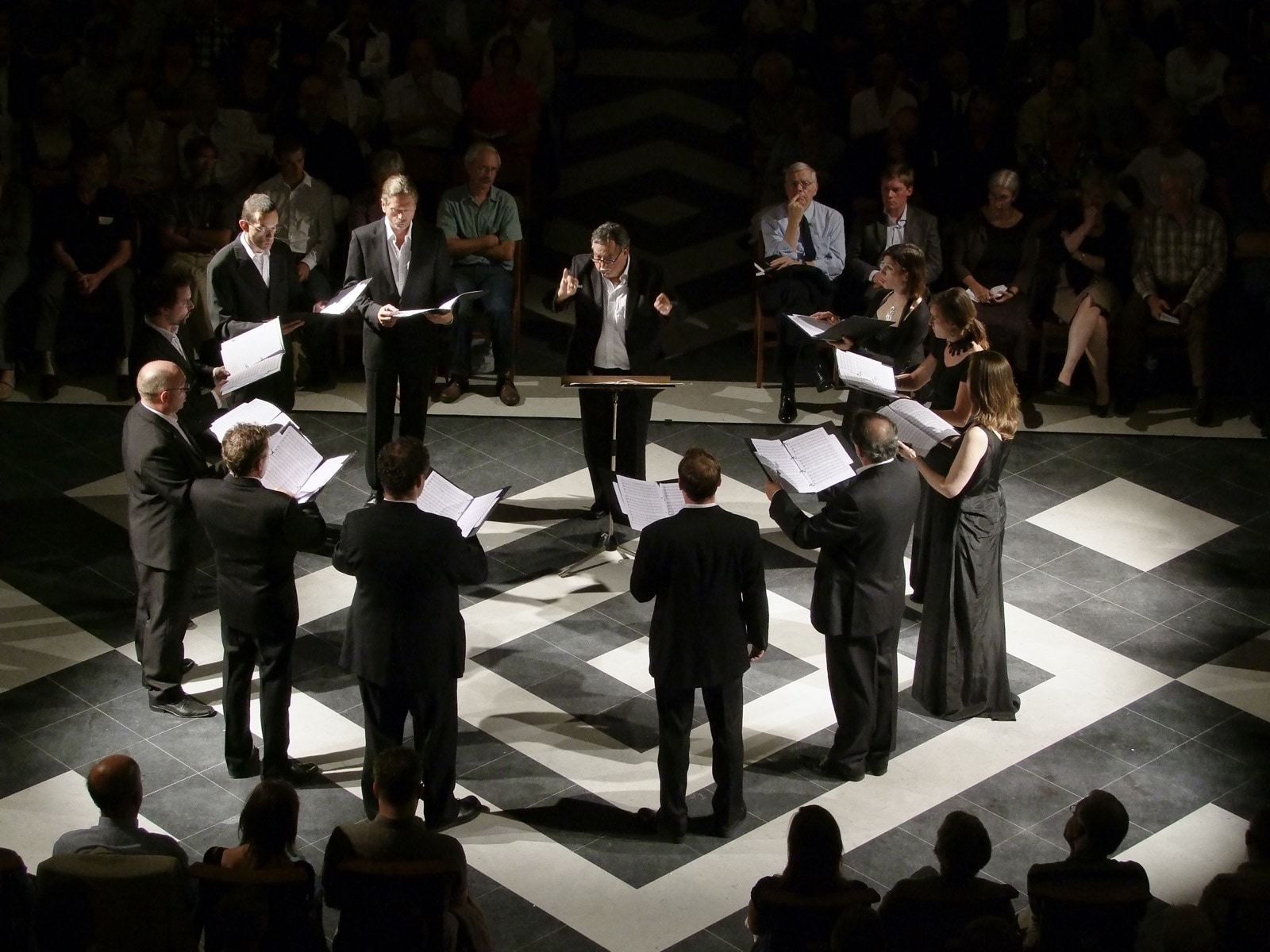
Paul Van Nevel
Paul Van Nevel himself holds numerous awards and distinctions and he continues to hand down his knowledge and experience to students at the Amsterdam Conservatoire, Hannover’s Musikhochschule and Geneva’s Early Music Centre. In addition, he headed the world famous Collegium Vocale Gent and the Netherlands Chamber Choir, he has written monographs on composers Johannes Ciconia and Nicolas Gombert, and he brings out modern editions of Renaissance music with the German publishing company Bärenreiter. The critics also praised his intriguing book The Landscape of the Polyphonists: The World of the Franco-Flemish School 1400-1600, in which he attributes the nature of the complex and melancholic works of the Franco-Flemish music school to the atmosphere of the local landscape, a place of serenity, desolation and unusual sombreness. Apart from his music publications, Van Nevel is the author of a book about the Portuguese capital Lisbon, in which he describes his 30-year association with this city, and he is also known as a cigar connoisseur.
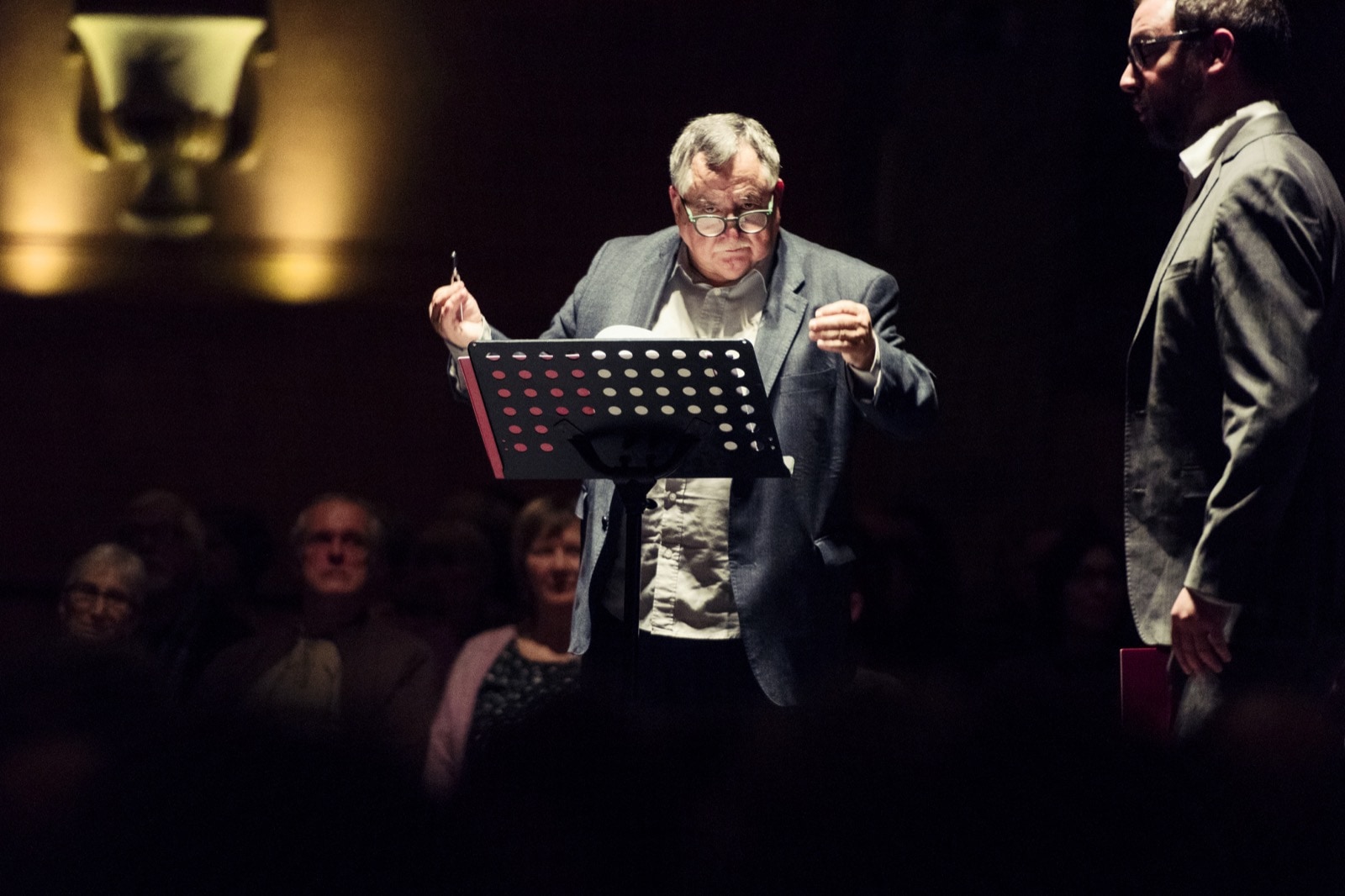
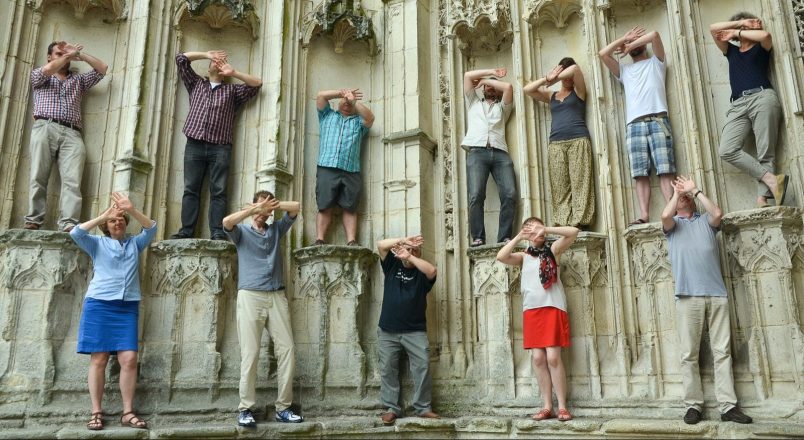
Music theorist Johannes Tinctoris wrote in 1477: “I recently came upon several compositions by musicians from a past age, in which there was more dissonance than consonance. I elicited that only music from the last forty years is worthy of being heard by an educated person.”
Masterful composition
“One of the highlights of Josquin’s oeuvre is indisputably the six-part motet Praeter rerum seriem, which has been handed down from no fewer than forty-one sources,” states Paul Van Nevel, commenting on the festival programme. “Magisterial in construction, this work is unique in the way that Josquin manages to shape the architecture of the polyphony. The Gregorian cantus firmus, dating from the 13th century, is recited in long note values. The counterpoint around it then elevates the music to a mystical experience,” he adds. “It is no wonder then that this composition cast such a long shadow over the next generation of composers. A wonderful example of this is the mass by Ludwig Daser, who took the motet as the model for his equally masterful composition.”
